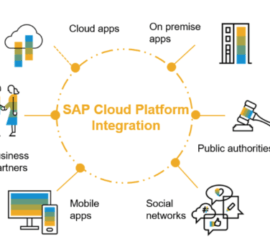 Contact us
Contact us The Difference Between Employee Experience and Employee Engagement
Employees are the backbone of any business. They are your most valuable resource and without them, you wouldn’t have a company to run. It’s no surprise then that cultivating a workplace environment that encourages employee satisfaction. After all, happy workers are productive workers. HR managers and CEOs have relied on two concepts to create a happy workforce — employee engagement and employee experience. These two concepts are often used interchangeably in casual conversation, but there are actually some key differences between them. In this article, we will explore those differences, so you can better understand what both of these terms mean for your business culture.
Employee Experience vs Employee Engagement
Employee experience, or EX, is a term that has been around for quite some time, but it’s only recently become more popular. It refers to an employee-centric approach to a business. Employee-centric companies cultivate a workplace environment where their staff enjoys coming to the office each day and are more motivated to the company’s mission, values and success. The goal of EX is to assist businesses to examine the complete employee lifecycle from the worker’s perspective, in order to provide workers with a more integrated and balanced experience.
On the other hand, employee engagement focuses solely on employee motivation and commitment. It is an employee’s emotional attachment to an organization — how committed they feel towards the company, as well as their willingness to put forth extra effort on behalf of the company. Both employee experience and employee engagement are essential to a company’s success. In essence, high employee engagement is a result of a positive employee experience.
Why Employee Experience Matters
Employee experience influences a business’ employer brand the same way customer experience has impacted the brand’s overall standing in the marketplace. Healthy employee experiences make your company more attractive to future talent.
Josh Bersin put’s it this way, “Candidates assess future employers from the very start of the talent acquisition experience and make quick judgments about what life will be like for them in the organization, based on how they interact with the enterprise during the recruiting cycle.”
Happy employees result in employee retention, which saves money and time. One survey reported that organizations lose a quarter of new employees within a year. The cost of replacing an employee who leaves is about half their annual salary on average. This number can be even higher for certain positions like sales roles or management jobs. And this doesn’t account for the loss of intellectual capital when someone with a great deal of experience leaves your company.
However, that’s not the only reason EX matters, though. A highly engaged workforce can improve your company’s profitability by 21%. Yet only 36% of employees are actually engaged in the workplace.
Employee experience and engagement are very much connected throughout the worker’s lifecycle at your company. It seems like everyone wants their employees to have a great work-life balance these days – it makes sense why employee experience has become such a big deal for companies recently.
If you want to build a strong company culture and employer brand where employees love working together toward the same business goals, then understanding both of these concepts is important because they play such vital roles in shaping workplace dynamics.
Dávid Marko, HR Consultant


